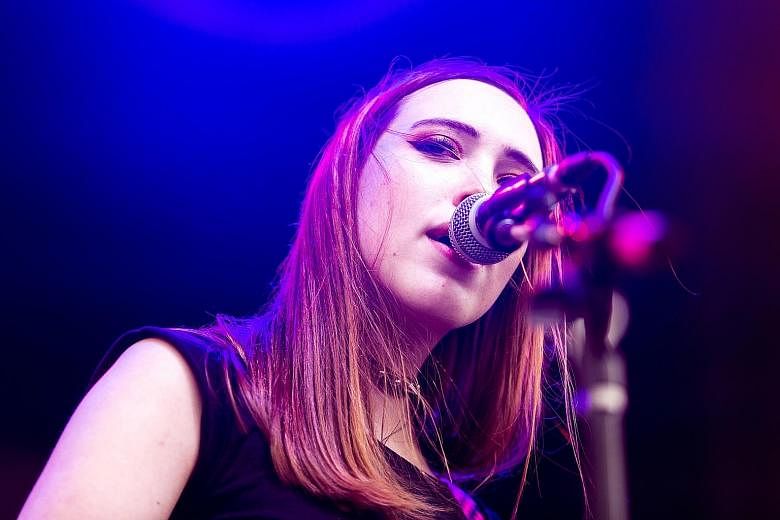NEW YORK • An Icelandic music festival has become the first to meet a target ensuring half its acts are women - increasing pressure on the world's biggest festivals to step up the number of women they book.
Iceland Airwaves, the country's answer to United States' South by Southwest, is one of 109 festivals that signed up in September to a global initiative called Keychange that aims to address gender inequality at such events.
The festivals - which include one of Sweden's largest, Way Out West, and the BBC Proms, which describes itself as the world's largest classical music event - agreed to aim for gender parity by 2022.
The pledge came after years of complaints about the gender gap at festivals. Social media users have manipulated the posters of major festivals such as Coachella to show how few women were playing.
None of the world's largest pop festivals - such as Glastonbury in Britain and Roskilde in Denmark - signed up to the target, although some are supporting the campaign financially.
"We still have another round of acts to announce, but we'll be over 50 per cent," Mr Will Larnach-Jones, Iceland Airwaves' head of operations, said in a telephone interview.
Female acts scheduled to play the event, which runs from Nov 7 to 10, include acclaimed Swedish electronic act Fever Ray and American singer-songwriter Soccer Mommy, he added.
The festival's staff kept the target at the back of their minds when booking acts, he said, but had found it easy to meet.
"It was almost back to front," he said. "We looked at people we really liked, and then in meetings, said, 'Do we have enough?' Happily, we always did.
"That shows you don't have to try hard - there're so many inspiring women around."
Iceland Airwaves, however, has an easier job than other festivals, Mr Larnach-Jones said.
It is dedicated to new music of all genres, whereas large festivals need established star names, meaning they have fewer women to choose from. But all festivals should be doing something positive on gender, he said.
Only four of the 24 acts that played Glastonbury's main stage last year were female stars or female-fronted bands, while English pop star Dua Lipa was the only woman among Roskilde's nine headline acts this year.
Europe's largest festivals are unlikely to adopt the 50 per cent target.
A statement on Roskilde's website says: "The balance is definitely off. Only 20 per cent of live musical acts in Denmark are female."
It aims to change that not with quotas, but by presenting inspiring "role models" on stage, like Beyonce's sister Solange, the statement adds.
Some 31 per cent of the acts at the event this year were female or female-fronted.
"Glastonbury is an entirely different thing to the festivals that have signed up to the target," Ms Emily Eavis, co-organiser of the Glastonbury festival and a Keychange ambassador, said in a telephone interview.
"I don't think any large-scale ones have as it's impossible to make a pledge like this."
Large events rely on stadium-sized acts and there are only so many of these in the world - men or women, she said.
They also have dozens of stages, with different bookers working on each.
The whole industry needs to focus on developing women so the pool of acts gets wider, she added.
The Keychange initiative, which is backed by the European Union, was set up to develop female talent across the music industry.
Mr Alexander Schulz, director of Germany's Reeperbahn festival, came up with the idea of a 50 per cent target for festivals, although other events have adapted it to their circumstances.
The BBC Proms, for instance, has pledged to ensure that half the classical pieces it commissions each year are from female composers, but it does not have targets to achieve gender parity among its performers.
Of all the composers whose music is being performed at the Proms this year, 18 per cent are women.
If the 109 festivals that have signed up to the initiative succeed, Mr Schulz expects larger festivals will join.
"The reasons for excuses are getting shorter year by year," he said.
NYTIMES

